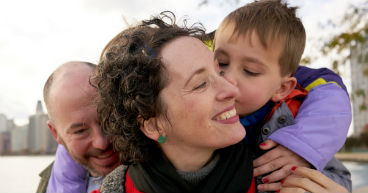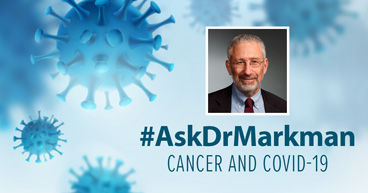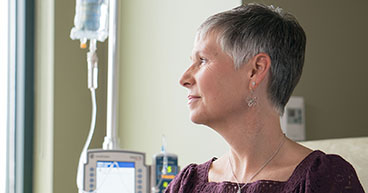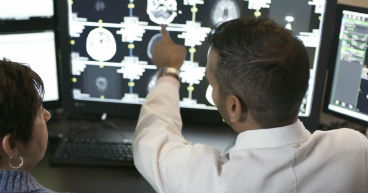


739 Posts

June 22, 2020
Q&A: How to talk to your children about your cancer diagnosisA cancer diagnosis is a life-altering experience for anyone. Parents, in particular, have an additional concern: How to tell their children about their diagnosis.

June 19, 2020
Three sweet treats that will make you forget they're healthyIf you’re looking for a little decadence, without the guilt, try these sweet treats.

June 18, 2020
Ask Dr. Markman: Should I be concerned about staying safe from COVID-19 at events and public gatherings?Dr. Maurie Markman, President of Medicine & Science at CTCA, answers your questions in his weekly Twitter Q&A.

June 17, 2020
COVID-19 may compound sleep issues for cancer patientsMillions of Americans had trouble sleeping even before the stresses caused by the COVID-19 pandemic.

June 16, 2020
Study: Men and women may experience different side effects from chemotherapyA new study concludes that men and women may experience different side effects from chemotherapy.

June 15, 2020
Are you getting enough vitamin D?Vitamin D is an important part of a healthy diet. It helps promote a healthy immune system and encourages the growth of healthy cells.

June 12, 2020
Video: What is cancer staging?Staging is the process of determining the size of a tumor and whether it has spread.

June 11, 2020
Ask Dr. Markman: Can I get COVID-19 from my kids? Will the virus mutate?Dr. Maurie Markman, President of Medicine & Science at CTCA, answers your questions in his weekly Twitter Q&A.

June 9, 2020
Coping with cancer treatment burnoutArpi Hamilton (right) credits her family, including her daughter Natalie (left), with providing her with the inspiration and support she needed to move forward with her cancer treatment.
Guidelines
The information contained in this blog is not intended nor implied to be a substitute for professional medical advice. Always seek the advice of your physician or other qualified health provider prior to starting any new treatment or with any questions you may have regarding a medical condition. Nothing contained in the blog is intended to be used for medical diagnosis or treatment of any illness, condition or disease.